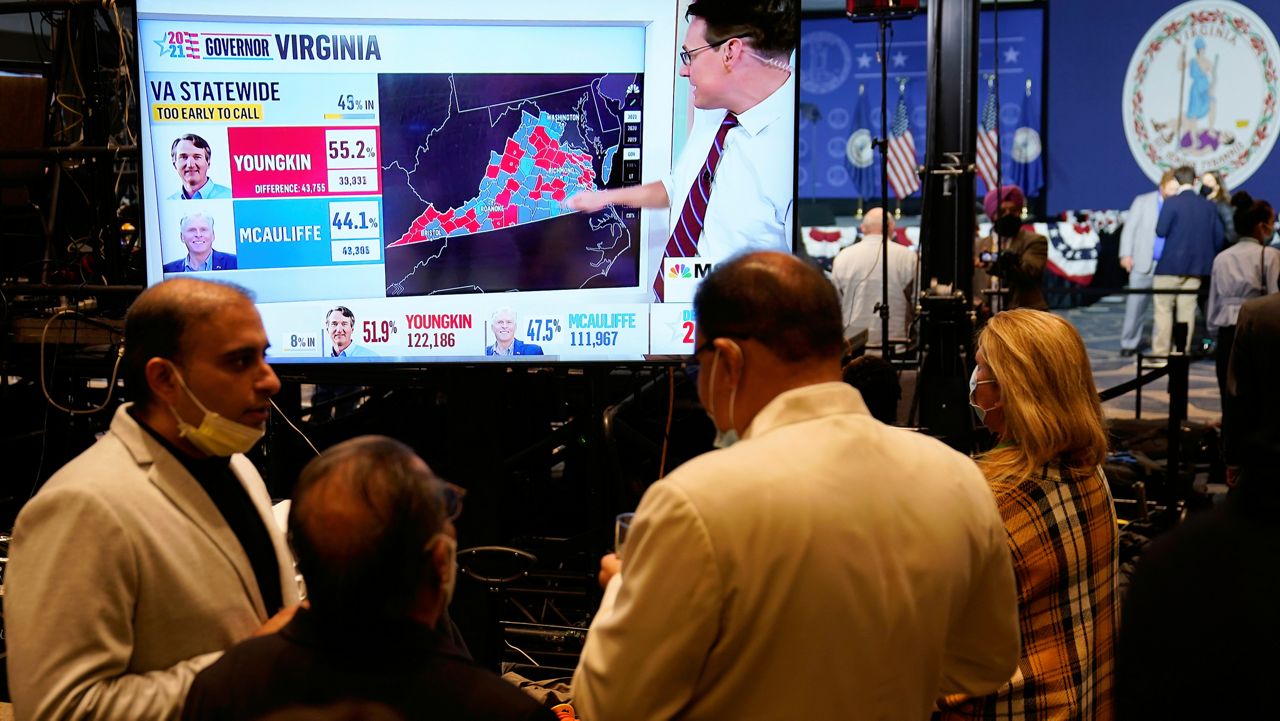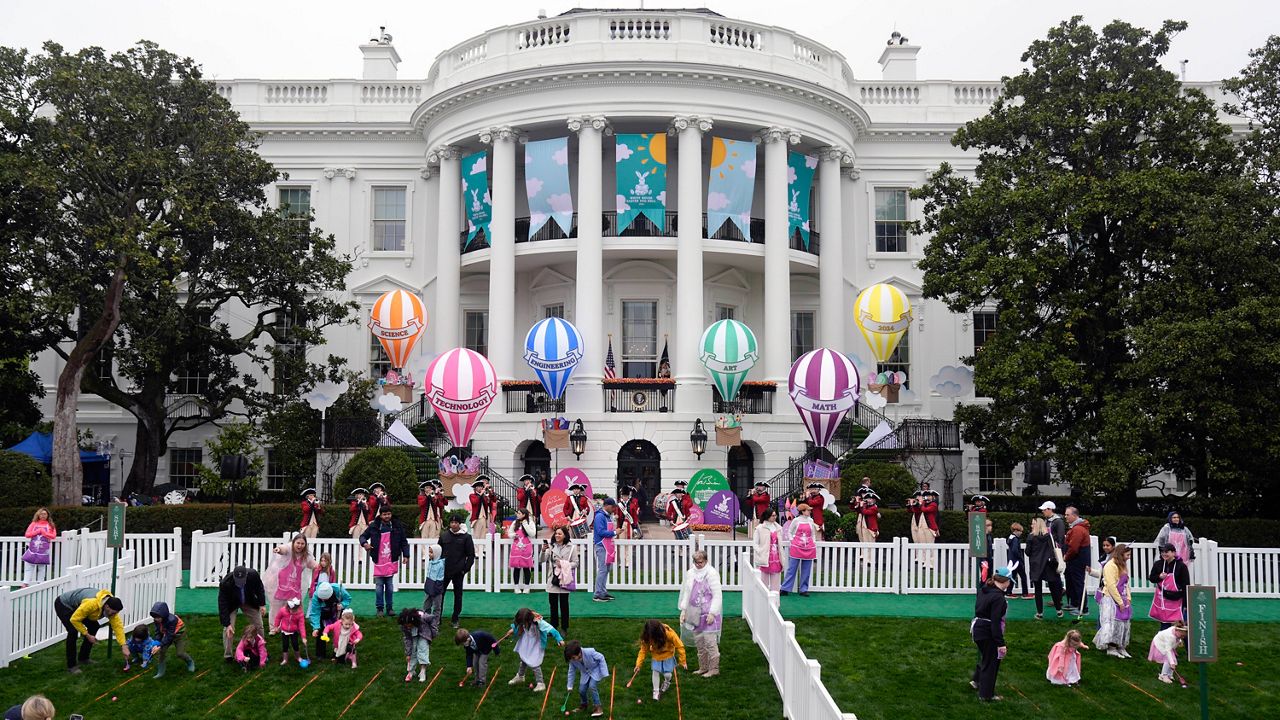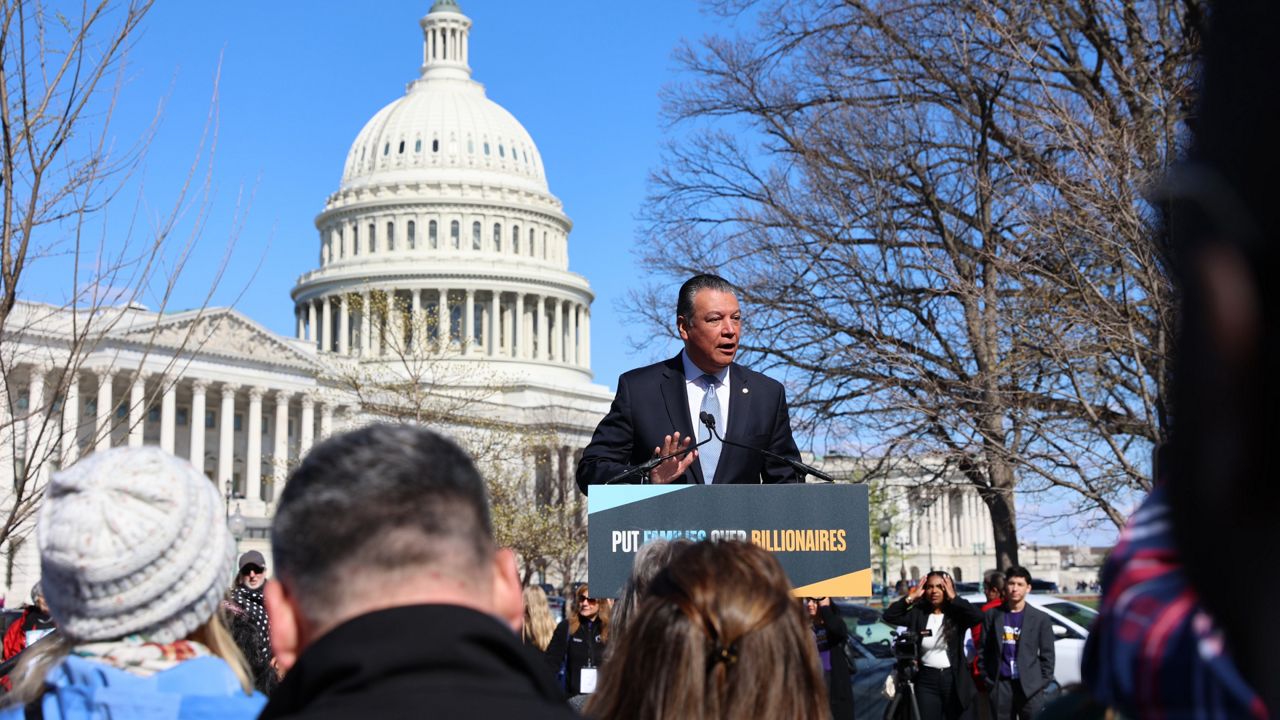Experts will no doubt be dissecting the results of Tuesday’s gubernatorial election in Virginia for weeks and months to come — though the Old Dominion state has elected a governor from the party opposite of the sitting president all but one time since 1977 — the Republican Glenn Youngkin’s victory in a state President Joe Biden carried by 10 points in the 2020 election has lent new urgency to pass the president’s economic agenda in Congress.
While one gubernatorial election is far from an indicator of how the 2022 midterms will pan out, several prominent Democrats in Congress offered a stark message: In order to hang on to their majorities in the House and Senate, Democrats will need to get the job done in terms of President Biden’s $1 trillion bipartisan infrastructure bill and the $1.75 trillion Build Back Better social spending and climate change package.
“There ought to be a clear message to my party and all those who support it to get the job done,” Illinois Sen. Dick Durbin, the No. 2 Democrat in the Senate, told reporters about Tuesday’s election in the Old Dominion state.
"Only in Washington, do people think that it is a smart strategy to take a once-in-a-generation investment in infrastructure and prevent your President from signing that bill into law, and that's somehow a good strategy," Virginia Sen. Mark Warner told reporters Wednesday.
"The last couple months, I've been appealing to my Democratic colleagues," Warner continued. "Let's get the President the infrastructure bill, not only in terms of the substance, but also in terms of showing that we can govern in a pragmatic, practical way."
“You can’t win in Virginia if you only appeal to very liberal voters," he added.
Virginia's other representative in the Senate, Tim Kaine, said that Congressional Democrats hurt Terry McAuliffe’s campaign to serve again as the state’s governor.
“I'm gonna be blunt, it's humbling to say it,” Kaine, the party’s 2016 nominee for Vice President, said. “But if we had been able to deliver infrastructure and reconciliation in mid-October, he could have sold universal pre-K, affordable childcare, infrastructure, creating jobs.”
Connecticut Sen. Richard Blumenthal told CNN that what went wrong in Virginia was “failure to deliver.”
“Congress has to deliver,” he continued. “Window is closing. We have no more time.”
In a speech about vaccinations for kids later Wednesday, Biden said that Tuesday's election certainly underscores the fact that Democrats need to show that they can "produce for the American people"
"It should have passed before Election Day," Biden said, but he conceded that he was "not sure I'd be able to change the number of very conservative folks who turned out in red districts" in Virgina, noting that "people are upset and uncertain about a lot of things," including COVID, gas prices and the economy.
Biden pushed back on the notion that the election was a referendum on his nascent presidency, but told Democrats who are negotiating on his legislative agenda to "get it to my desk."
Democrats have struggled to get every member of their caucus on board with both bills, though negotiations have picked up in recent weeks. The $1 trillion infrastructure bill passed the Senate in August, but has stalled in the House, in part due to threats from progressive Democrats who want both bills passed simultaneously.
West Virginia Sen. Joe Manchin, one of the two moderate holdouts in the evenly divided Senate, slammed progressives at a press conference Monday for not voting on the infrastructure bill.
"In my view, this is not how the United States Congress should operate," Manchin said Monday. "It's time to vote on the [infrastructure] bill, up or down."
Manchin said that the "political games" have to stop, lamenting that "in all of my years of public service," the West Virginia lawmaker has "never seen anything like this."
"Holding this bill hostage is not going to work in getting my support for the reconcilation bill," Manchin said, defending his position that he has been working with Democrats "in good faith" throughout the process of negotiating the larger social spending and climate change bill.
One could infer that the impact of the Virginia race is already adding fuel to the fire to pass both bills, which contain widely popular provisions across the political spectrum. On Wednesday morning, House Speaker Nancy Pelosi announced that four weeks of paid family and medical leave, which was axed as recently as last week, is back in the Build Back Better bill. Polling suggests that paid leave is immensely popular, and the United States is the only wealthy country without any form of national paid leave.
Democrats also announced Tuesday a major agreement on prescription drug reform, getting the Senate's other moderate holdout, Arizona Sen. Kyrsten Sinema, on board with a major campaign promise of the party for the better part of the last two decades.
Pelosi told reporters on Wednesday that McAuliffe's loss in Virginia does not change the Democrats' agenda.
"The people have spoken," the venerable House Speaker said. "We respect the results. I’m very sad — Terry McAuliffe was a great leader, he was a great governor of the state."
The president, who returned from Europe in the early morning hours Wednesday, did not respond to questions about the election results. But amid sagging approval numbers and faced with Democratic losses and surprisingly close elections on Tuesday,








